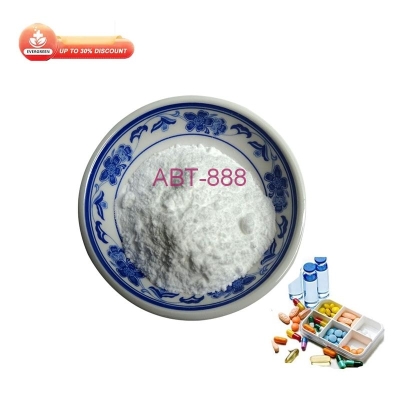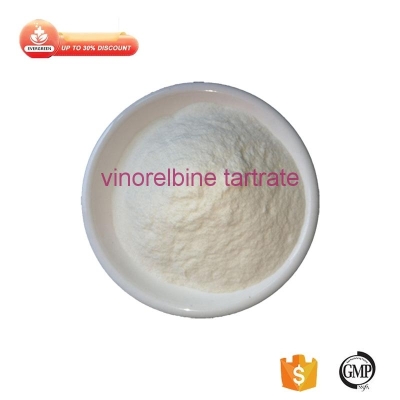-
Categories
-
Pharmaceutical Intermediates
-
Active Pharmaceutical Ingredients
-
Food Additives
- Industrial Coatings
- Agrochemicals
- Dyes and Pigments
- Surfactant
- Flavors and Fragrances
- Chemical Reagents
- Catalyst and Auxiliary
- Natural Products
- Inorganic Chemistry
-
Organic Chemistry
-
Biochemical Engineering
- Analytical Chemistry
- Cosmetic Ingredient
-
Pharmaceutical Intermediates
Promotion
ECHEMI Mall
Wholesale
Weekly Price
Exhibition
News
-
Trade Service
Hepatocellular carcinoma (HCC) is one of
the most common solid malignancies in the world.
A large proportion of HCC patients are diagnosed at an advanced stage and can only receive systemic therapy
.
We have seen the evolution of systemic therapies, from single-drug targeted therapies (sorafenib and lenvatinib) to combinations of checkpoint inhibitors and targeted therapies (atezolizumab + bevacizumab therapy).
Despite significant progress, only a small percentage of patients experience lasting clinical benefit, so treatment remains a significant challenge
.
Over the past few years, emerging systemic therapies, including new molecularly targeted monotherapies (e.
g.
, donafenib, donafenib), new immuno-oncology monotherapies (e.
g.
, durvalumab, devalumab), and new combination therapies (e.
g.
, durvalumab plus tremelimumab), have shown encouraging results
in clinical trials.
In addition, many new treatments have been proposed, such as sequential combination targeted therapy and next-generation adoptive cell therapy, which have the potential to improve treatment outcomes
in patients with advanced HCC.
On November 11, 2022, Cun Wang, Wenxin Qin, René Bernards of Shanghai Jiao Tong University and Andrew X.
Zhu of Massachusetts General Hospital jointly published an online newsletter entitled "Evolving therapeutic landscape of advanced" in Nature Reviews Gastroenterology & Hepatology Hepatocellular Carcinoma", which summarizes the latest clinical advances in the treatment of advanced liver cancer and discusses future prospects
that may help develop more effective treatments for advanced liver cancer.
Primary liver cancer is the sixth most common malignant tumor and the fourth most fatal malignant tumor in the world, and it remains a major threat to
human health.
WHO estimates that liver cancer will cause more than 1 million deaths
by 2030.
Hepatocellular carcinoma (HCC) is the leading histological type of liver cancer, accounting for about 90%
of liver cancer cases.
The leading cause of liver cancer worldwide is hepatitis B virus or hepatitis C virus infection, which involve about half of liver cancer cases
.
Other factors, such as heavy alcohol consumption and nonalcoholic fatty liver disease (NAFLD), are also part of the complex cause of
HCC.
Treatment regimens for patients with HCC are determined
by clinical stage.
According to the internationally recognized Barcelona Clinic Liver Cancer (BCLC) staging system, HCC patients are divided into 5 clinical stages, BCLC-0 (very early), BCLC-a (early), BCLC-b (intermediate), BCLC-c (advanced) and BCLC-d (terminal).
Total or partial liver resection and liver transplantation are the mainstay of treatment for early-stage liver cancer
.
For patients with medium-stage HCC, topical therapy (eg, transarterial chemoembolization) has been identified as the treatment
of choice.
For patients with advanced HCC who can no longer receive radical or topical therapy, systemic therapy is the only treatment option
that confers a survival benefit.
Because symptoms appear late, more than 50% of HCC patients are diagnosed at an advanced stage, so these patients may receive systemic therapy
.
Systemic therapy for advanced liver cancer in progress (Image from Nature Reviews Gastroenterology & Hepatology)
In the past, chemotherapy drugs were the main drugs for systemic treatment of intermediate and advanced liver cancer, but their efficacy was limited and adverse reactions were significant
.
The FDA's approval in 2007 of sorafenib, a multi-target tyrosine kinase inhibitor (TKI), changed the treatment paradigm
for HCC.
However, for nearly a decade, sorafenib was the only systemic therapy
available for advanced liver cancer.
Although many clinical trials were conducted between 2007 and 2016, no new drugs
were approved during this period.
This frustrating situation changed in 2017 when regorafenib was approved for second-line treatment
of advanced HCC.
Immunomodulatory effects of molecular targeted agents (Image from Nature Reviews Gastroenterology & Hepatology)
Subsequently, more successful projects have been completed, leading to regulatory approvals for lenvatinib, cabozantinib and ramucirumab, as well as breakthrough combination therapies
for atezolizumab + bevacizumab.
In addition, several new therapies (e.
g.
, a combination of durvalumab and tremelimumab) have shown beneficial therapeutic efficacy in phase III clinical trials, which may further expand the list of
drugs that are effective in treating HCC.
In this review, the latest advances in systemic therapy for advanced HCC are summarized and key clinical findings
are outlined.
The review also discusses unmet needs and future directions
.
Informational message:







